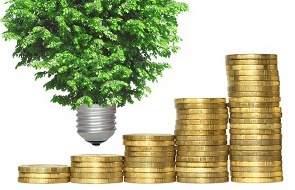Striking a delicate balance: Economic growth and sustainability

Are environmental sustainability and economic growth compatible? That decades-old debate was back in the news recently followingcriticism by some green organizations towards Virgin Atlantic,after the air carrier announced plans to begin commercial short-haul flights in the U.K.
Those environmental groups question whether Virgin’s expansion into the U.K. domestic market goes against the airline’s stated goal toreduce its carbon emissions by 30 percentbetween 2007 and 2020.
Perhaps such scrutiny is a good thing, as a growing number of companiesincorporate sustainability programs into their development planning– and bring the concept of environmentally sustainable business growth into the mainstream.
Speaking at the release of its first-ever sustainability report, the CEO of Switzerland’sClariant chemical companyunderscored the importance of a green business philosophy. “Only companies that manage their business sustainability in a responsible manner,” he said, “can achieve operational success in the long term.”
In itsrecent Towards a Green Economy report, the United Nations Environment Programme (UNEP) says the widespread belief -- that there must be a trade-off between economic progress and environmental sustainability -- is a fiction. According to the report, green industry can provide new opportunities for investment, growth and the creation of jobs. It also explodes another myth: that green economies are luxuries only wealthy nations can afford. “Contrary to this perception,” said the report, “numerous examples of greening transitions can be found in the developing world, which should be replicated elsewhere.”
Photo ofeconomic efficiency conceptbykirillov alexeyvia Shutterstock.
学术研究支持这一观点。“我believe that pitting economic growth against environmental sustainability is a false dichotomy,” said Fiona Wilson, assistant professor of strategy, social entrepreneurship and sustainability at the University of New Hampshire‘s Whittemore School of Business and Economics.
“Somehow, along the way, society has made the assumption that economic growth has to come at the expense of environmental sustainability, and vice versa," she said. "Many businesses have come to believe that if they make decisions that will have a positive impact on society or the environment, then they will necessarily decrease their profits.”
But Wilson says those assumptions don’t jibe with her research – especially when it comes to small, private companies. A growing number of these businesses begin with a clear intention of benefiting society and the environment, as well as their own finances. She refers to these companies as the “business models for people, planet and profits.”
“这些都不是“做好事”的模型an afterthought,” she said, “but where it is ‘baked-in’ to the DNA of the organization through the design of the core product or service. When you design a business model like this from the outset you do ‘good’ in the course of everyday business.” In turn, this type of company can translate better revenue growth into additional sustainable programs, she said.
Wilson points to Britain’sGood Energy Groupand toRevolution Energy-- a New Hampshire-based company that works with local governments and businesses on ways to achieve a “new energy paradigm” -- as strong examples of what can be achieved. Both companies, she said, “are dedicated to renewable energy and have designed their business models to ensure a lot of integrity to their environmental values, but also in a way which can make them financially viable.”
Another example of a successful marriage of sustainability and growth, said Wilson, isPoly Recovery. The sustainable recycling company has what it calls a100 Mile Modelfor recycling. It's a belief that “waste should remain as close to its place of origin as possible; it should not end up on a container ship simply headed out of site and social consciousness.”
“Poly Recovery is growing fast,” she said, “but again, that economic growth is happening simultaneously with an increase in their contributions to environmental sustainability.”
Looking at the corporate model
Resolving that tension between growth and sustainability is harder for corporations and larger companies dealing with existing business models. But Wilson notes thatWalmart, Costco and other firms have been able to make sustainability work for them.
And as the world's largest retailer, Walmart haslong acknowledgedsustainability as an important part of its successful and responsible business model."[O]ur actions have the potential to save our customers money and help ensure a better world for generations to come," said Walmart spokespersonBrooke Buchanan in an email to GreenBiz.
But this balance, Buchanan said, had to be learned."One of the keys lessons is that our size and scale can work in our favor when integrating sustainability into our business. We believe that sustainability is directly tied to increased efficiency, which allows us to deliver low prices for our customers. In short, sustainability is good for business."
For her part, Fiona Wilson believes businesses should avoid having what she called an either/or mentality. “Companies need to think ‘both/and’," she said; "both economic growth and more sustainable approaches. This takes creativity, this takes innovation, this often takes radical redesign or reinvention of existing approaches.”




